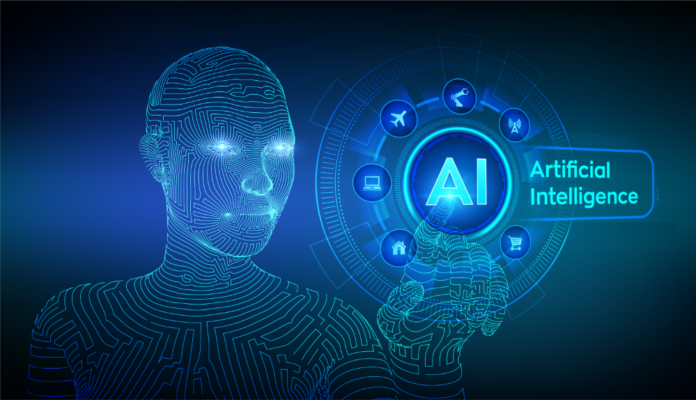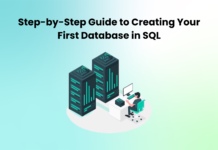In this article I’ll briefly go through what Artificial Intelligence is, and how it works. Artificial Intelligence, as the name suggests, is artificial intelligence demonstrated by computers, unlike humans and other animals.
There have been many attempts to define Artificial Intelligence and its limits. The most widely accepted definition is that AI is the ability of a machine to perform a task better than a human could. As a computer improves at a particular task, the human observer cannot tell the difference between what the machine has done and what a human would have done. As this process occurs over time, the machine begins to improve at tasks beyond that in which it was trained. AI also refers to software tools and algorithms that are designed specifically for use on AI platforms, like IBM’s Watson.
There are many examples of AI in action. One of the most well known examples is Google’s PageRank algorithm, which is used to rank websites. In particular, the use of algorithms and software tools to search for relevant content on websites helps websites move up the ranks of major search engines like Google. In some cases, these programs can even make a website less visible in search results. Other applications of artificial intelligence are in games, such as online casinos, where robots play against humans in virtual poker games.
There are two forms of Artificial Intelligence, both machine and human. The machine-generated version uses a series of mathematical algorithms to generate useful results. Human-generated Artificial Intelligence works by observing and evaluating data and making predictions based on the data collected. This type of AI uses data collected from real people to create predictions and has been used for decades to make weather forecasts. Although the accuracy of human-generated AI is often questionable, it is not impossible to train humans to work as artificially intelligent machines.
Although artificial intelligence has been around for a very long time, and its capabilities are constantly improving, it is only in the past decade or so that it has become such an important part of the modern world. It is likely to be used in many different domains in the future, and the scope of the applications will continue to expand. Some examples of future application areas include medicine, warfare, space exploration, business and entertainment. Many of the developments taking place now could be possible using human-generated AIs. These include robotic surgery, virtual reality, autonomous driving and space exploration.
In the meantime, I hope you enjoyed the article. If you have any thoughts or suggestions for content you’d like us to present on this topic please feel free to contact me via email or via the website listed below. Alternatively you may want to subscribe to my RSS feed and I’ll e-mail you with new content on a regular basis. You can also follow me on Twitter and Facebook. Thanks for reading!
The Benefits & Risks Of Artificial Intelligence
Many companies have heard the promises made by the likes of Google’s Larry Page, when he says that artificial intelligence is the wave of the future. It is often touted as being able to better provide useful results and services, than humans could. This, coupled with the increasing popularity of the idea, and the increase in the number of companies claiming that they use artificial intelligence, has lead to a lot of discussion and controversy regarding what the future holds for this technology.
So how will an artificially intelligent system be able to better perform tasks? Will it be able to predict crime before it happens, and prevent accidents from happening?
There are many benefits that come from having an artificial intelligent system in a company. One of the biggest benefits is that such a system would not only help with tasks that require human assistance, but it can be used to do more tasks, as well, and improve the efficiency of an entire business.
For example, the company could hire an assistant, who is not a human, and make decisions, based on their research, rather than using a human resource. This way the human resource would become redundant. Furthermore, it would also be cheaper to employ a human instead of having a computer taking the decisions.
One of the main risks that comes from artificial intelligence is that it could be used to take over a business, or even worse, to sabotage it. If a computer was to find out how to sabotage the company, it would be a very long and tedious process that would need a lot of time and money to completely clean out a company.
So while there may be some possible risks, in most cases, artificial intelligence is incredibly beneficial. It can help with tasks that are difficult or even impossible for humans to do. Furthermore, it also provides more efficiency and reliability to a company, which can lead to a huge improvement in its bottom line.
However, in the past, there have been a number of concerns over the idea of artificial intelligence. These concerns include the fact that it is quite possible that these systems may cause damage to the environment.
One of the biggest concerns about artificial intelligence is that it can cause a negative impact on the Earth, because if one of these systems were to malfunction, it could cause major problems for the planet. Therefore, there are some who argue that there are a number of issues that should be looked into when dealing with artificial intelligence.
However, there are a number of different ways that companies can protect themselves against these risks. Companies should look at different methods of making sure that the artificial intelligence they use is as safe as possible, and that it can also be efficient, as well.

































